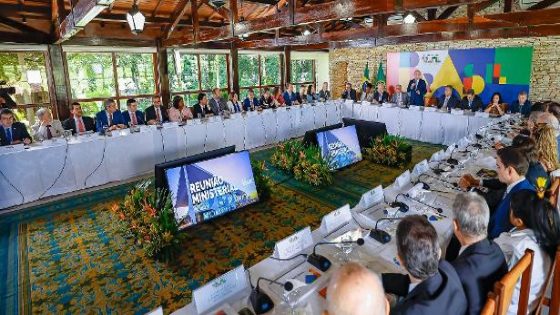On January 21, 2025, the Brazilian government faced significant backlash following confusion over recent changes to the Pix payment system. This incident has been labeled as the worst crisis during President Lula’s administration, prompting urgent discussions among his ministers. How will this impact Brazil’s economy and public trust?
- Government faces backlash over Pix changes
- Rui Costa emphasizes need for organized communication
- Lula surprised by Pix crisis developments
- Coordination among ministries to improve relations
- Lula demands immediate, tangible results for citizens
- 2024 postponed as "year of harvest" to 2025
Brazil’s Pix Payment System Crisis: What You Need to Know
What happens when a payment system causes chaos? The recent turmoil surrounding Brazil’s Pix system has raised many questions about governance and communication strategies. With the government admitting to missteps, the focus is now on how to regain public confidence.
Government’s Response to the Pix Payment Controversy Explained
The Brazilian government is taking steps to address the fallout from the Pix changes. Key ministers are emphasizing the need for better communication and coordination among departments. Here are some critical points from the recent discussions:
- Ministers are focusing on delivering clear information to the public.
- Meetings have been organized to improve inter-ministerial relations.
- President Lula is pushing for more tangible results that directly impact citizens.
- Future strategies will prioritize transparency and effective communication.
How the Pix Payment System Works and Its Importance
The Pix payment system is a revolutionary digital payment method in Brazil, allowing for instant transactions. Understanding its workings is essential for grasping the current crisis. The system is designed to enhance financial inclusivity and efficiency in transactions. However, recent changes have sparked confusion, leading to widespread misinformation.
Future Implications for Brazil’s Economy and Governance
The ongoing crisis presents significant implications for Brazil’s economy. If the government fails to restore trust, it could hinder economic growth and stability. Clear communication and effective governance are vital in navigating these challenges. How will the government adapt its strategies to ensure public confidence moving forward?
In conclusion, the situation surrounding Brazil’s Pix payment system serves as a critical lesson in governance and communication. As the government works to rectify its missteps, the focus on transparency and public engagement will be key to rebuilding trust and ensuring economic stability.
































